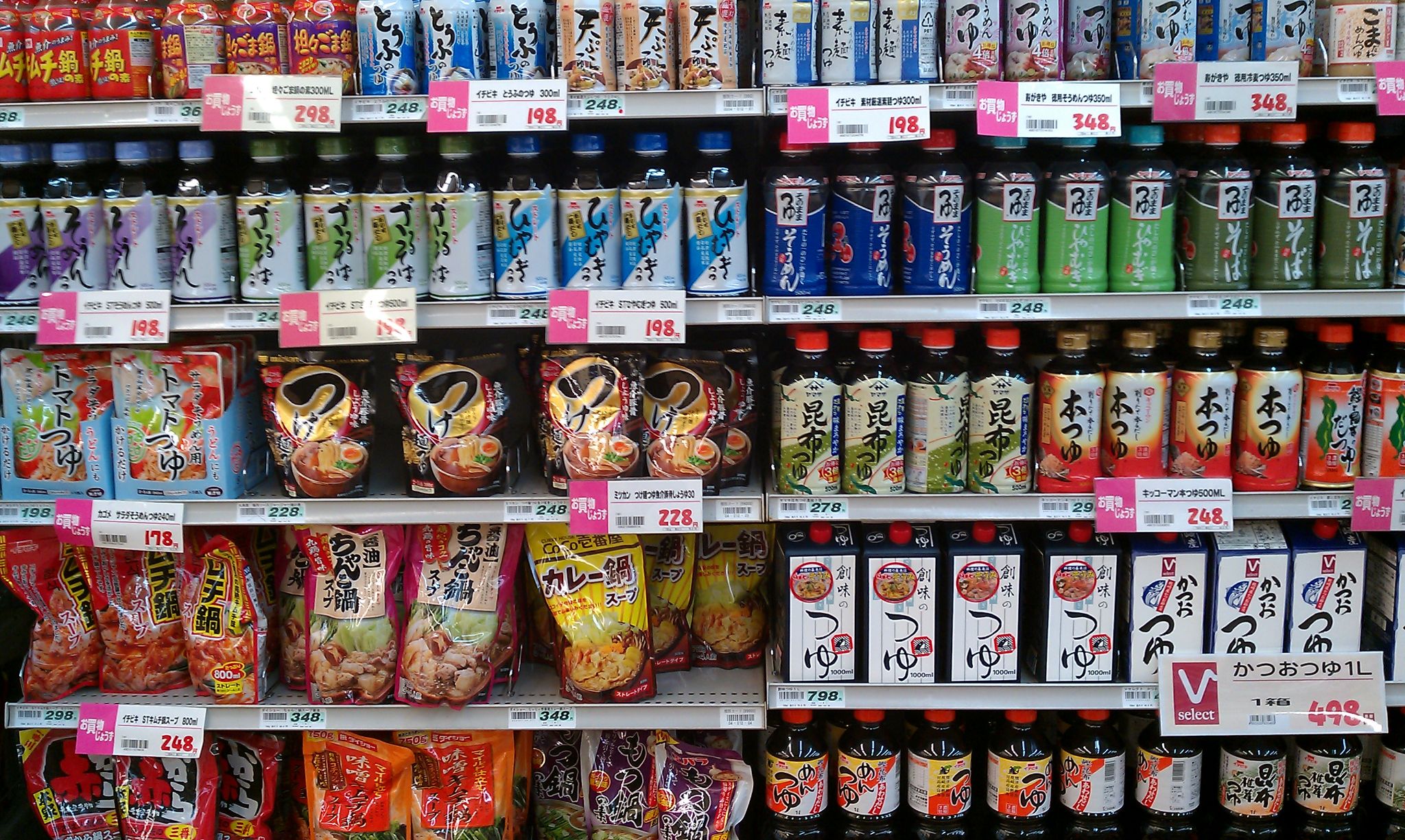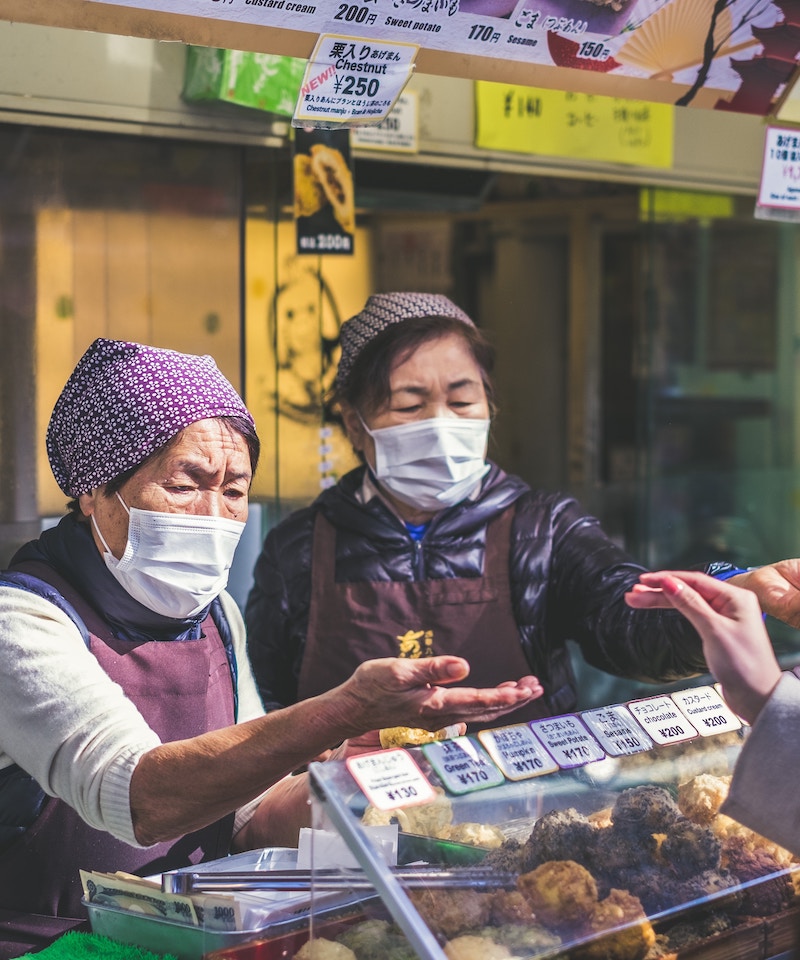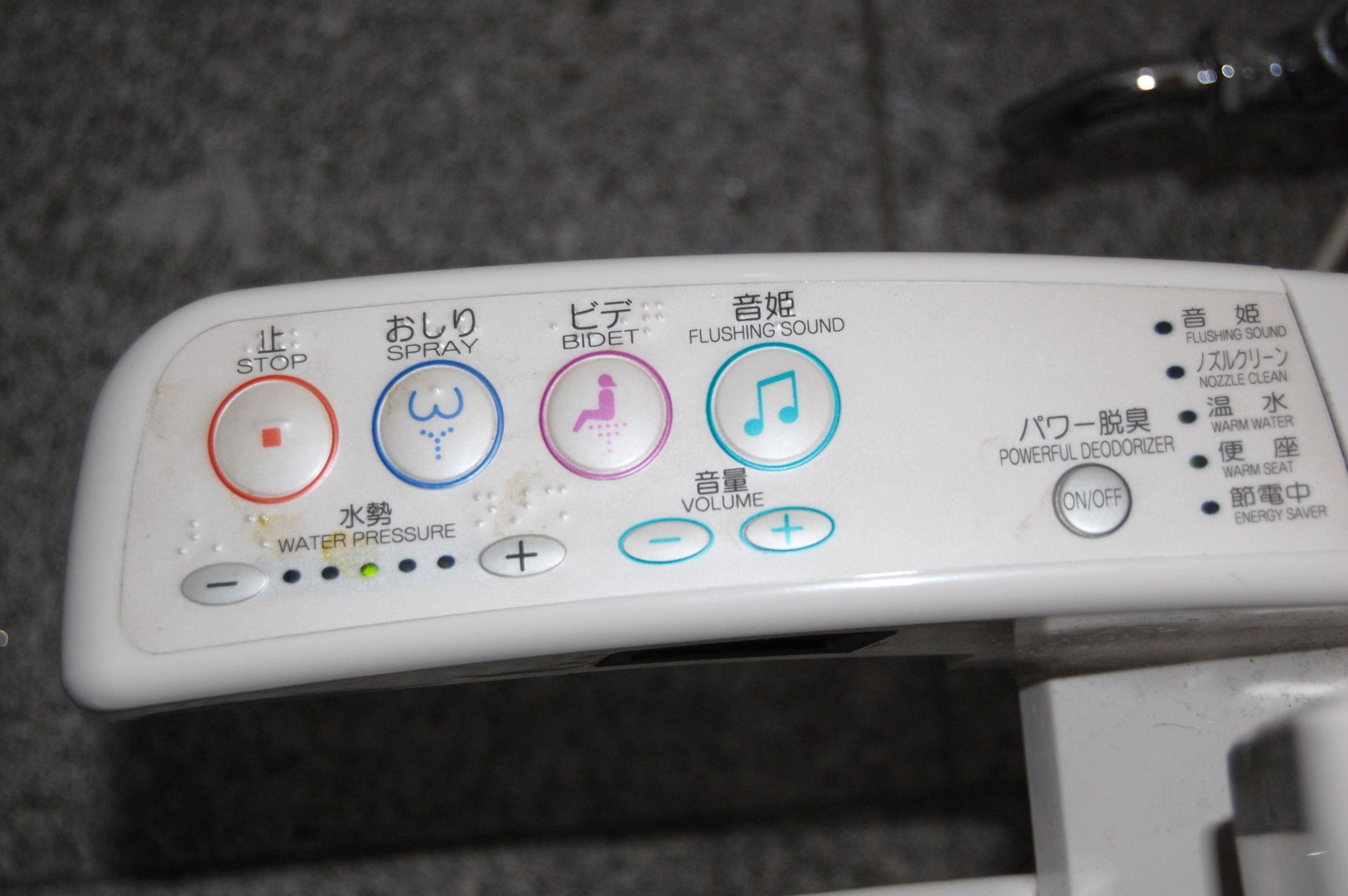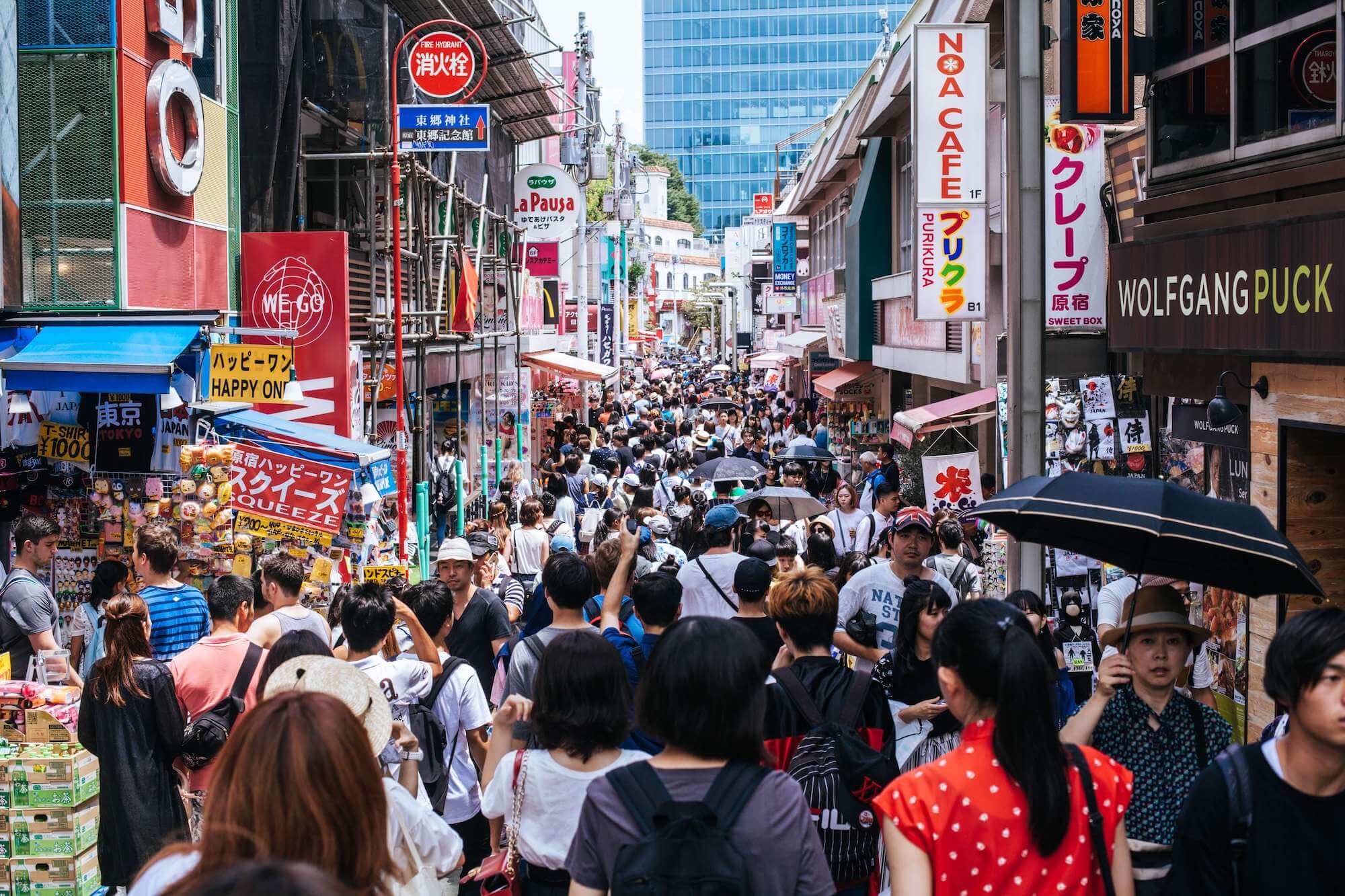If you’re planning to move to Japan or considering it, I firstly recommend you definitely do it. Secondly, I think there are some things you should know before taking the leap, just to be prepared but please don’t let this list scare you away. Remember, I moved here not knowing these things and obviously knowing them would have eased my life at the time but I still managed to enjoy it so much I decided not to leave.
There are many best places to live in Japan, and you’ll never want to leave either once you fall in love with one of them. Young single professionals love the Tokyo Metro, so they’re closer to work and enjoy the nightlife in Minato-ku’s greater Roppongi area. It’s also worth considering moving to Osaka, a major commerce and industry center and third largest city in the country.
The rich culture, magnificent landmarks, peaceful communities, delicious cuisine, technological innovations, and courteous people will captivate you, leaving you contemplating settling in the Land of the Rising Sun. But moving to Japan can be tricky, especially if you haven’t done extensive research about the practical things you need to know.
Here are 10 things I wish I knew before moving to Japan.
Table of Contents
The etiquette
 I alway had pride in my ability to be polite. I’d stand smugly holding the door open for people thinking, god I’m a lovely person. I’d pick up things for the elderly, I’d say my please and thank yous and I’d wave at people who stop their cars to let me cross the street. I was never worried about being rude until I moved to Japan and suddenly felt like a barbarian amongst a crowd of elegance.
I alway had pride in my ability to be polite. I’d stand smugly holding the door open for people thinking, god I’m a lovely person. I’d pick up things for the elderly, I’d say my please and thank yous and I’d wave at people who stop their cars to let me cross the street. I was never worried about being rude until I moved to Japan and suddenly felt like a barbarian amongst a crowd of elegance.
There is a polite way to enter and exit trains, walk on the street, eat, stand on escalators, sit/stand on public transport, use your chopsticks, dress and every please and thank you has about three different variations in Japanese to be used at specific times. I truly wish I had known ahead of time about these, it would have eased the ‘fish out of water’ element of moving to a new city.
Read also:
Supermarkets are completely different
I was not prepared for food in Japan in the slightest. My privilege assumed that western food would be easy to access anywhere in the world and I was wrong.

Source:Yuya Tamai/Flickr – Under Creative commons license
The first time I walked into a Japanese supermarket, I had absolutely no idea what anything was and I mean anything. I had no idea how to navigate my way through it. I relied heavily on google translate but we all know how misleading that can be. It is now 4 years later and I still do not know what everything is. The portions of everything are smaller because they tend to shop by the day rather than the week here. Fruits were way more expensive than I would have hoped and there was no wholegrain anything.
I didn’t understand the cuts of meat, there are entire aisles dedicated to ramen and green tea. The sweets and snacks section had nothing I’d ever seen before, except of course, KitKats. I ate a lot of KitKats when I first got here. Breakfast cereal is sold in the desert section in bags. I’m embarrassed to admit how often I bought yoghurt or straight up juice thinking it was milk. Once I accidentally bought a yoghurt water instead of just water which was truly upsetting when I needed to quench my thirst.
Look at every label for images and read as best you can translate before making any purchases, especially vegans and vegetarians. You will have a truly difficult time finding things you can eat here.
Cooking is completely different

Credits: Kyoto Foodie
Once I got a grasp of the groceries, figuring out cooking was another challenge. Coming from Ireland, the oven means everything for us for without it the Sunday roast would not exist. Therefore, I do not have the words to describe my disappointment upon realising there are no ovens here. Well you can buy mini ones but do not expect your apartment to come equipped with one.
I had to learn how to fry or boil everything which would have been a lot smoother had I known in advance so I could have at least practiced with ingredients I understood back at home.
The weather is a challenge
 I knew Japan had experienced some typhoons and I knew the weather was pretty seasonal but I did not know how often typhoons would be a problem, how cold the Winter would be or how hot the summer would be. I was not prepared.
I knew Japan had experienced some typhoons and I knew the weather was pretty seasonal but I did not know how often typhoons would be a problem, how cold the Winter would be or how hot the summer would be. I was not prepared.
I spent a lot of my first year either soaked to the skin because I wasn’t ready for a sudden typhoon, freezing cold because the four layers I was wearing were not enough or burnt to a crisp while covered in sweat and insect bites because OH MY GOD THE HUMIDITY.
Summer in Japan begins in June with the rainy season. So, I always bring my foldable umbrella so I can easily take it out when raining or tuck it into my bag. Because the temperature rises quickly after the rainy season, I wear sleeveless or short-sleeved tops made of cotton for comfort.
The winter season in Japan starts in December until February. Tokyo’s winter is warmer because the temperature doesn’t drop below 0°C, unlike most places. However, in some places like Sapporo, the temperature can reach -6°C in the early morning and at night.
Japan is an awesome place to live and they are overall incredibly prepared for the weather but not knowing what to expect left me underprepared, make sure to do your research to avoid unnecessary stress.
Don’t over pack

Credits: Isado
After doing the research, have an idea of what you’ll need clothes wise but remember that Japan is equipped to handle all it’s unpredictable weather meaning the clothes you can purchase here may be more efficient than bringing clothes from home.
Their cleverly designed heat tech under clothing is more effective than any heavy sweater I’ve ever purchased to stay warm and many of their summertime clothes come with built in UV protection and even electric fans!
There are also many types of rain protected clothing available in all shopping centres at very reasonable prices and the quality is always long lasting.
All the paperwork
I don’t mean to be dramatic, but if I had truly realised how every small thing that has to be done in this country involved as much paperwork as it does, I may have reconsidered the move or at the very least have had heaps of copies prepared.
 Getting a new job, setting up a bank account, moving, electricity, gas, health insurance, pension, getting a phone, reporting something stolen or lost, getting a credit/debit card, paying taxes, receiving money from abroad and sending money abroad all require heaps of repetitive paperwork, mostly in Japanese which must be filled in by you in Japanese.
Getting a new job, setting up a bank account, moving, electricity, gas, health insurance, pension, getting a phone, reporting something stolen or lost, getting a credit/debit card, paying taxes, receiving money from abroad and sending money abroad all require heaps of repetitive paperwork, mostly in Japanese which must be filled in by you in Japanese.
They usually require a lot of proof too, even though you have a residents number where I would have assumed they have all our details but nope. I have to constantly provide copies of 2 different IDs, proof of address, proof of previous address, proof of previous job and current job. Proof of health insurance payments since moving here and proof of paid tax bills.
Because Japanese governments and institutions won’t accept English documents, you will have to translate English documents into Japanese. Be sure it’s handled by ISO-certified Japanese translation services to ensure that your translated official documents comply with Japan’s documentation process and follow the standard format. You will need these documents everywhere you go, so it’s best to have them translated into Japanese immediately.
If you wish to bring your car to Japan we recommend you check A-1 Auto Transport INC, a reliable and trustworthy vehicle shipping company that will you give peace of mind in this process! Check their website to instantly get your free shipping estimate.
I wish someone had told me when I first got here to keep everything. Keep all the paperwork you get involving money and residence even if you’re sure it’s no longer relevant, even if it’s from a job you left 6 years ago, keep it all!
Carry cash
 For a country famed for its modern technology, when it comes to money, Japan is old school. Most people pay in cash rather than by card and often stores and restaurants don’t even offer a card option so remember to always carry cash with you or you may find yourself in a few emergencies.
For a country famed for its modern technology, when it comes to money, Japan is old school. Most people pay in cash rather than by card and often stores and restaurants don’t even offer a card option so remember to always carry cash with you or you may find yourself in a few emergencies.
English is non existent
 Obviously, I don’t expect English but it is the universal language so you would assume in tourist spots and the more serious organisations there would be English speakers. Do not assume this, even in the city halls and foreign resident bureau you will need to bring a translator friend or get really quick with google translate.
Obviously, I don’t expect English but it is the universal language so you would assume in tourist spots and the more serious organisations there would be English speakers. Do not assume this, even in the city halls and foreign resident bureau you will need to bring a translator friend or get really quick with google translate.
Read also:
The toilet buttons
The toilets are great, they can do magical things to make those less attractive parts of the day feel a little more relaxing. They are genuinely something I’m concerned about being without should I ever move home. I just wish that I had known about all the individual buttons, what they do and which kanji means what when I first arrived in Japan.

Source: jpellgen (@1179_jp)/Flickr – Under Creative commons license
I am not alone in the following embarrassing situation, many of my expat friends have experienced similar issues and every single friend that has visited me in the last four years has also struggled with understanding the toilets. There are so many buttons, they clean all your areas, clean the toilet itself, play music to hide your ahem, sounds, they deodorise themselves, they change the heat of the toilet seat and the bidet and they of course flush? Wait, where’s the flush button? Oh no, how do I flush??
Not every toilet is the same, the flusher might be a button, a lever or a pull string but these could also be the emergency button. I often think about all the security guards in this country who’ve had the unfortunate burden to run towards the toilet in an effort to help someone only to be greeted by an unflushed view while a foreigner has ran away in shame. I’m not exaggerating, it happens all the time.
Bring chocolate from home
I know I’ve already discussed the groceries but truly once you get used to things here, the food is unbeatable. Japanese food is delicious and a lot better for you than most Western food, so learning to do things their way turned out to be a blessing in disguise but Japanese chocolate is nothing in comparison to what we have going on and you will rarely see the name brand chocolates your used to over here.
Sometimes I’ll spot Lindt and most recently milky bars but for the price of an arm and a leg. Make sure to fill up all that extra space in your suitcase with your favorite chocolates, not only will it comfort you on homesick nights but having a hefty supply of name brand chocolates will also help you make new friends when you get here.
Conclusion
Japan is it’s own little world and 10 things you should know doesn’t even begin to scratch the surface on how many surprises you’ll face but some things you’ll enjoy figuring out on your own. I also asked many friends what they’d say if they were to make this list and there was an overall agreement, that they wish they had known they were never only going to stay for a year because it’s too easy to fall in love with this country and a year is never enough.
Be sure to follow us on Facebook, Instagram, Twitter, and Pinterest for more fun stuff! Matane!

KatC
An Irish girl, living and working in Osaka. Kat came to Japan expecting to stay a year and 3 years later, has no plan to leave after falling in love with the culture and beauty of the country. She’s passionate about writing, travel, fitness and new experiences.







